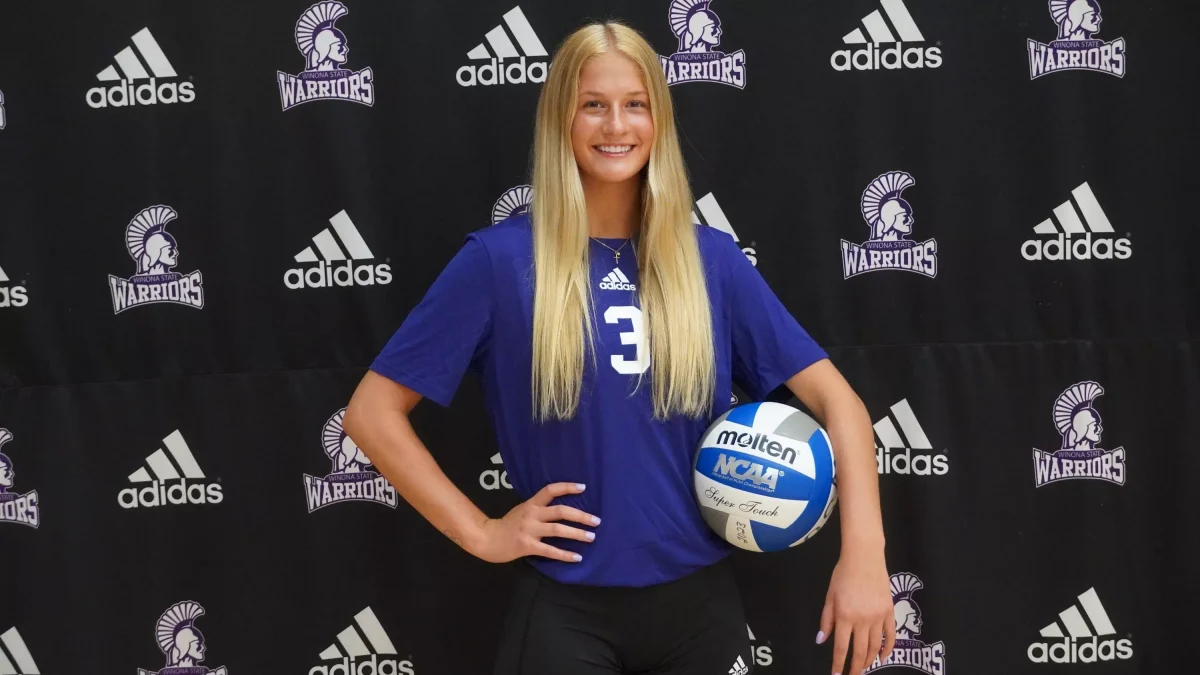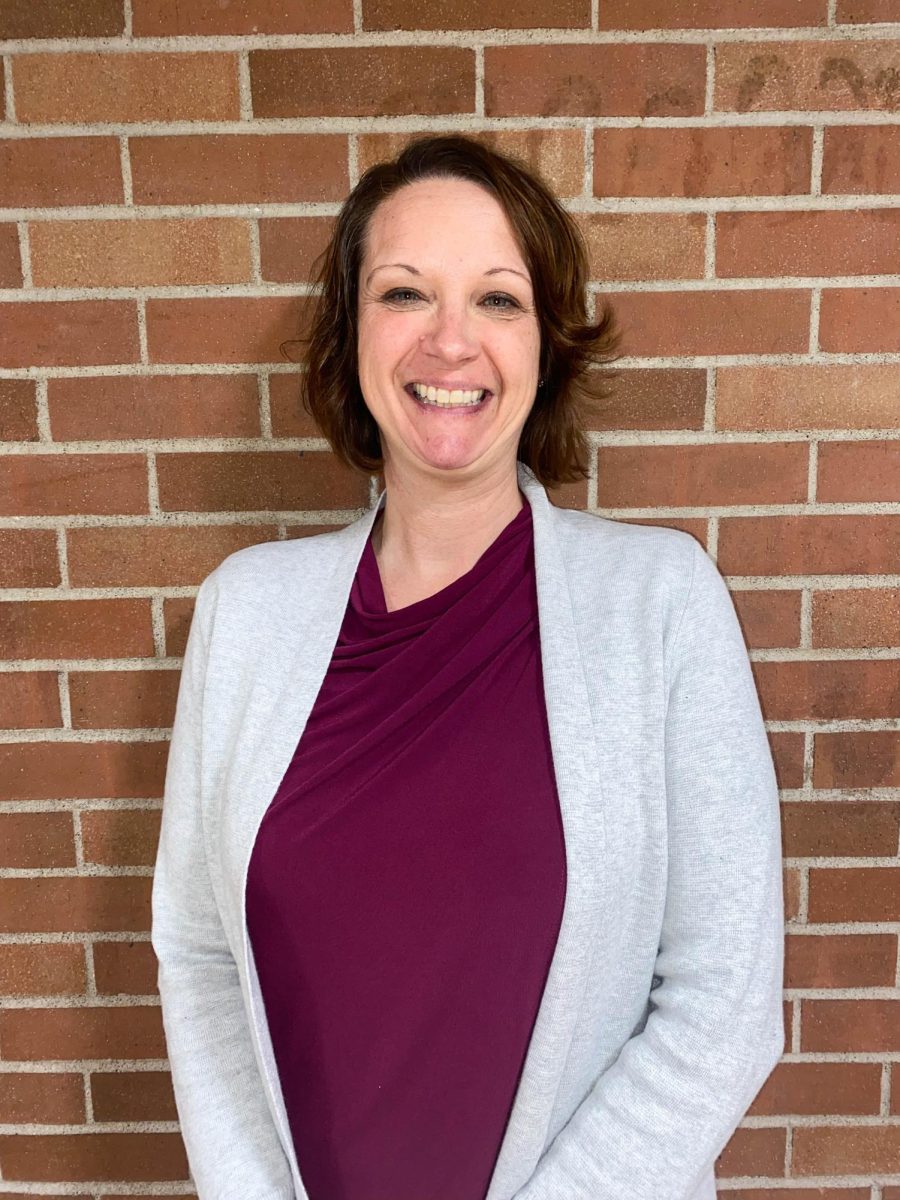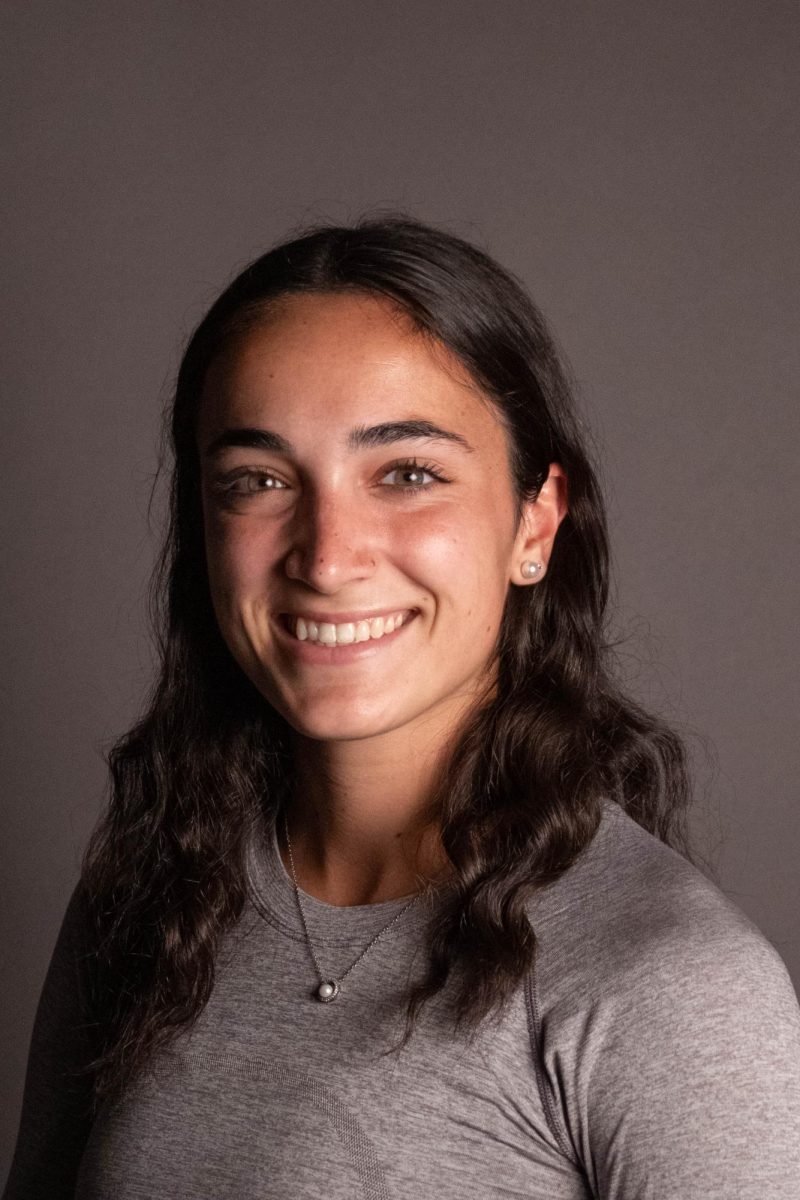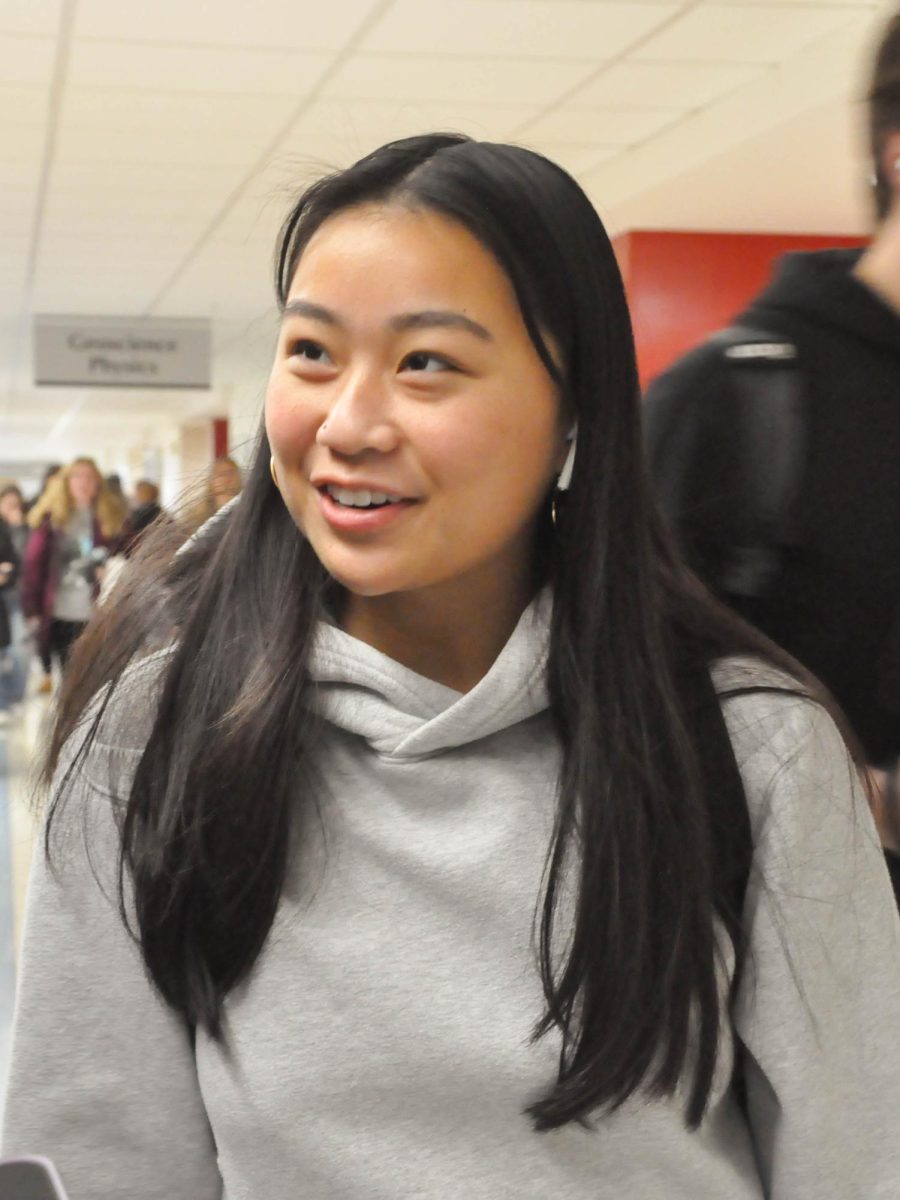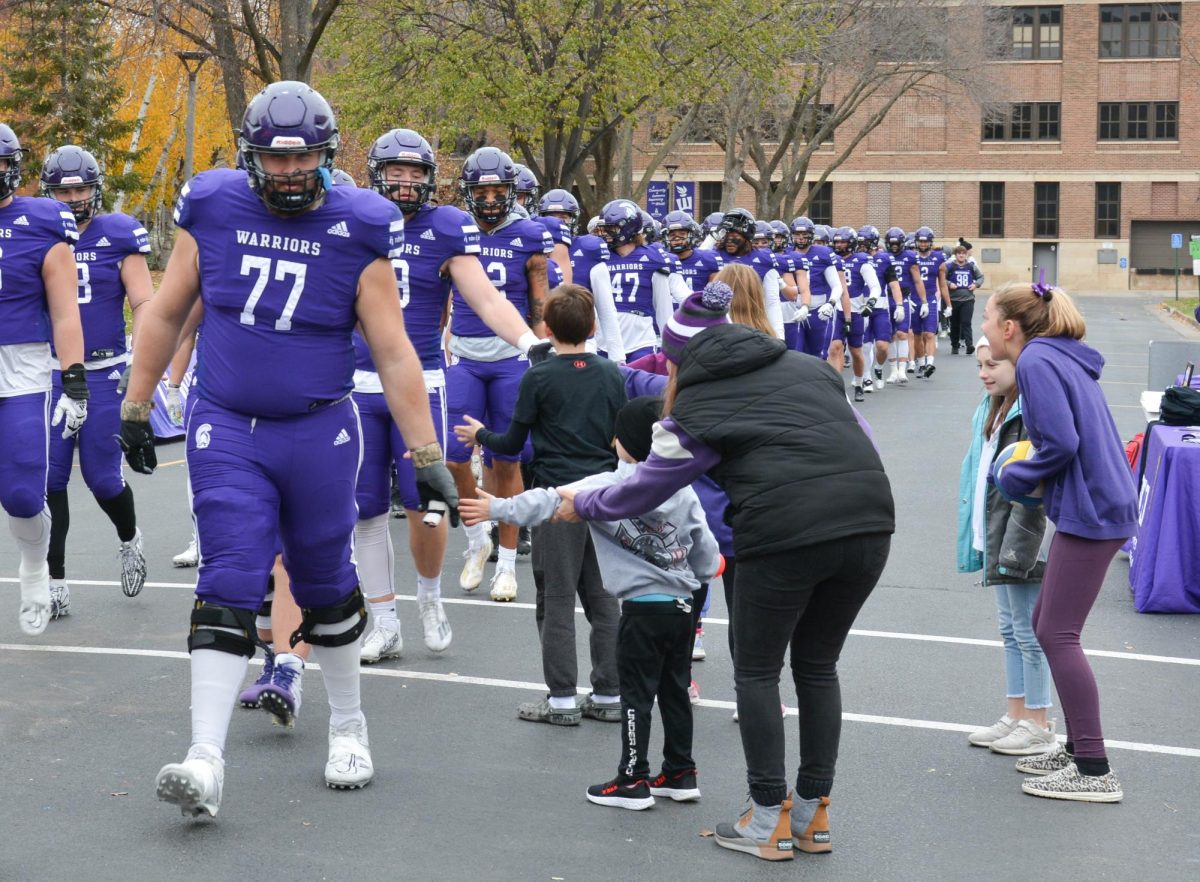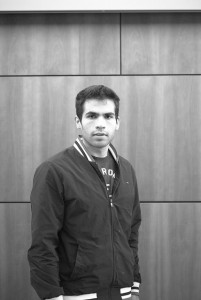
First-year Yousef HajSakr, an international student from Syria, encourages students to educate themselves on the conflict in Syria. (Photo by Jacob Striker)
Dana Scott/Winonan
First-year international student Yousef HajSakr is majoring in biochemistry in hopes of becoming a surgeon some day.
HajSakr became interested in the medical field and inspired to become a surgeon when he was 16 years old. HajSakr had to assist a doctor perform surgery on his brother after he had gotten shot in the stomach outside of their home in Syria.
“I did it without any fear,” HajSakr explained. “I knew if I helped the surgeon, I will be helping my brother.”
The surgeon then urged HajSakr to pursue a career in the medical field.
HajSakr is now 19 and many life-changing events have happened to him in the past three years. He remembers the exact date he first arrived in the United States: Aug. 13, 2014.
Syria is currently in the midst of a civil war, and once a person turns 18 they must join the army. However, HajSakr did not want to because he does not support the government.
He went to the United Arab Emirates (UAE), where his immediate family lives and his father has a job. But because HajSakr did not have a job in the UAE, he was sent back to Syria.
HajSakr had a science teacher in high school from Minnesota, and she helped him get to the United States and to Winona State University. However, because HajSakr did not join the Syrian army, his passport was taken away, and now he cannot travel outside of the United States.
“It was pretty hard,” HajSakr shared. “I knew once I put my foot on the plane I wouldn’t see my family for a long time.”
HajSakr explained it is very difficult not having a passport, because it is his only form of identification.
“I feel like I don’t have much freedom,” HajSakr said.
His asylum application has been in process for the past ten months. Asylum is the protection given by a nation to a person who left their country as a political refugee. According to HajSakr, for some the application takes two months, while for others it can take two years.
Despite the uncertainty with his passport and asylum application, HajSakr maintains a positive outlook.
“At the same time, I am going to school, so that feels good,” HajSakr said. “I am doing what I want to do.”
HajSakr Skypes with his parents and sibling living in the UAE twice a week. However, he has no contact with his family in Syria.
HajSakr described what it is like to not have contact with family.
“Simply, grabbing a knife and cutting your heart to pieces,” HajSakr explains. “The only thing you know is what you see on TV, which is always sad.”
War broke out in Syria when HajSakr was 15 years old, and he began protesting against the government a year later.
He recalls a day when his school told all the students they had to go out and support the president. However, instead of supporting the president, they protested against him. Then, someone came from behind and shot his friends who led the protests at the school in the head.
HajSakr also recounted a time when he made it to the finals in math olympics. He ended up unable to continue in the competition because the school got a warning from the government stating they would do something to the students if he continued.
HajSakr shared that he does not see other people in the Winona State community affected by the war in Syria.
“People don’t even know where Syria is,” he said.
HajSakr said the only thing most people know about the war in Syria is about ISIS, an Islamic extremist group. HajSakr left Syria before the group even formed, but he said some people have still asked him if he is a part of it.
“It is only a small part of what is going on,” HajSakr said. “People are being killed, bombed and displaced in Syria everyday.”
HajSakr shed light on the refugee crisis that is taking place because of the war in Syria.
“European countries aren’t helping the refugees,” HajSakr said. “When refugees took boats to Europe, they treated them like animals.”
Sweden and Germany are the only countries that have taken in refugees, he said.
HajSakr is open-minded when people ask him questions about the war in Syria.
“People have the right to know what is going on in Syria,” he said.
HajSakr takes every opportunity to share and educate people on the events in Syria, which includes being featured on KTTC news.
“For a second I was worried something would happen to my family,” HajSakr said. “But other things are already happening to them, so why not try and help them.”
HajSakr said one thing he would like to see is a change in people’s awareness about what is going on in Syria right now.
“The most basic thing people can do right now is know people are being displaced and need somewhere to live,” HajSakr said. “The whole world should support the refugees and help the people in Syria fight the government and ISIS.”








































